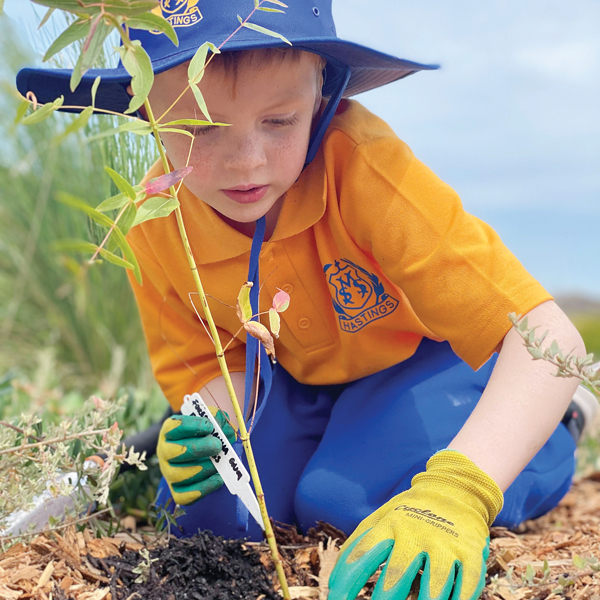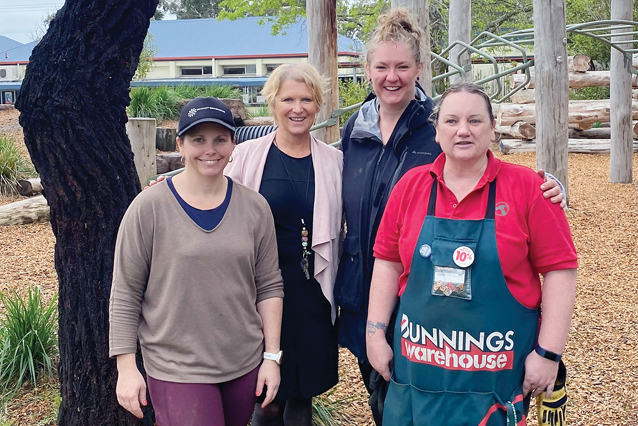STUDENTS from St Mary’s Primary School, Hastings are taking a hands-on approach to creating a healthy environmental with the help of the wider community.
The school is creating an outdoor learning space and permaculture garden that will include a community garden, wetlands and a labyrinth to give students a chance to be “stewards of creation and responsible learning”.
Permaculture leader Marissa Egan said the school is hoping to get as many businesses and companies as possible to partner with them to create an award winning “one-of-a-kind garden” unlike anything the peninsula has seen before.
“This project supports the development of partnerships in sustainability/environmental education, such as Caritas, Catholic EarthCare, Indigenous connections to land and story and fosters positive partnerships with our local groups,” she said.
Egan, a former keeper at Melbourne Zoo, is designing, overseeing and managing the development of the new area of the school, and has designed and constructed 10 raised vegetable gardens and a composting system.
She has also developed the indigenous flora nature and bike trail and created the concept design for wetlands with help from a landscaping company.

The completed garden will include edible archways, a walking-meditation labyrinth, an orchard and even places to grow mushrooms.
As the permaculture garden has required a significant investment, Egan said she had been busy applying for grants and approaching local businesses for support.
The permaculture garden is on a 3000 square-metre block adjacent to the school owned by the Western Port Catholic Parish.
Each area has a purpose, Egan said. “The wetlands, for example, will help to teach students about the major role that swamps, bogs and marshes play in the environment.
“Not only are they a home to a great variety of plants and animals, but they can also protect shorelines, cleanse polluted waters, prevent floods and restore underground water supplies. The students will be able to monitor the frogs, newts and other aquatic species that will be drawn to this ecosystem.
“The biodiversity doesn’t end there either. The native garden running around the entire boundary of the property will be filled with native plants that hold a special purpose for the Indigenous people of the area, such as bush foods, medicinal plants and plants of cultural significance. All of these plants also help to promote biodiversity in the area, which supports our local ecosystem.
“The newly built vegetable gardens will not only be used by students, but by members of the community, and will help to teach kids about where our food comes from, and sustainable methods of growing. Eventually, children will learn how to cook that seasonal produce in order to produce meals for disadvantaged members of our community.”
Community partners in the project include the Western Port Biosphere Foundation, which runs workshops for schools and recently provided 200 local indigenous plants, Mornington Peninsula Shire which gave $7000, and local businesses that have provided products and labour.
Egan said the upgraded playground and indoor courtyard along with the block project provided “wonderful new natural environments for students to explore and learn in”.




